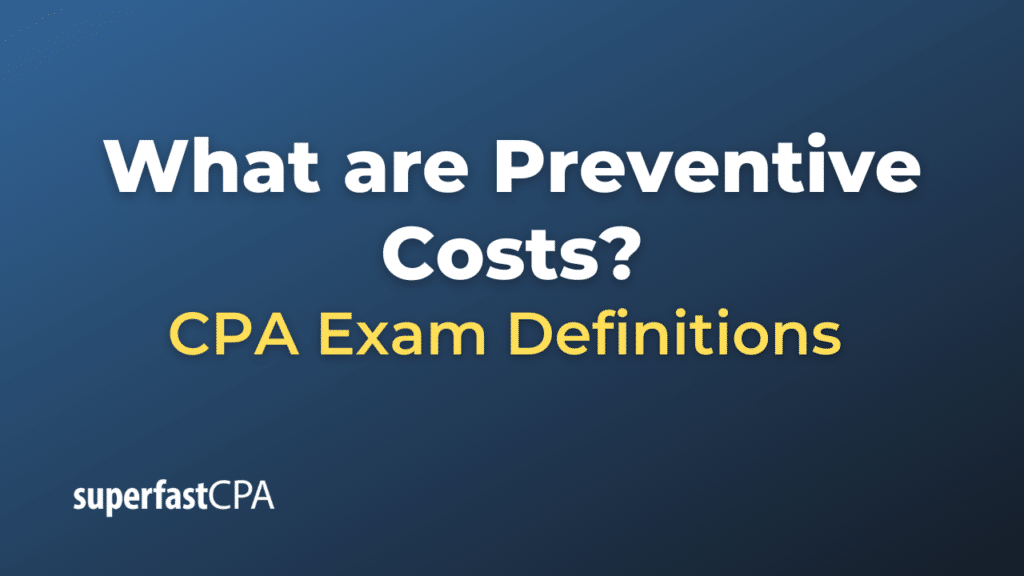Preventive Costs
Preventive costs, often referred to as prevention costs, are part of a company’s quality control program. These costs are incurred to prevent defects from occurring and to avoid potential failures or errors in products or services. The goal of incurring these costs is to ensure quality from the outset, which can reduce the costs of rework, warranty claims, and lost customers.
Preventive costs might include:
- Design and Implementation of a Quality Management System: This could involve costs related to developing and implementing processes to ensure that products are manufactured to a high standard.
- Training: Costs incurred in educating and training employees to ensure they understand the standards of quality required and how to achieve them.
- Quality Engineering: The costs related to designing products or services in a way that prevents problems from occurring. This could also include the cost of acquiring equipment or technology that assists in maintaining quality standards.
- Supplier Evaluation: The costs involved in evaluating and selecting suppliers who can provide quality materials or services.
- Preventive Maintenance: Regular maintenance and inspection of machinery and equipment to prevent breakdowns and quality problems.
- Quality Improvement Projects: Costs related to projects aimed at improving quality processes or reducing defect rates.
Investing in preventive costs can help a company reduce the amount of defects and improve overall customer satisfaction. This in turn can lead to reduced costs in other areas, such as inspection, internal failures (like rework or scrap), and external failures (like repairs, replacements, or lost sales due to dissatisfied customers).
Example of Preventive Costs
Let’s consider an automobile manufacturing company.
To ensure the high quality of its vehicles and reduce future defects or failures, the company might incur the following preventive costs:
- Quality Management System: The company invests in developing and implementing a system that monitors and controls the quality of its production process. This includes expenses related to software, hardware, and consultancy fees.
- Training: The company regularly trains its employees on quality standards, best manufacturing practices, safety procedures, and the use of new equipment or software. The costs include training materials, the time of trainers and trainees, and potentially, the cost of hiring external trainers or consultants.
- Quality Engineering: The company hires a team of quality engineers to ensure the cars are designed and manufactured to meet high-quality standards. Their salaries and associated costs form part of the preventive costs.
- Supplier Evaluation: The company conducts thorough evaluations of its suppliers to ensure the materials used in the manufacturing process are of high quality. The costs include staff time, travel to supplier sites, and any testing of supplier samples.
- Preventive Maintenance: The company invests in regular maintenance and inspection of its production machinery and equipment to avoid sudden breakdowns or quality issues in the production process. This could include the costs of maintenance personnel, spare parts, and equipment downtime during maintenance.
- Quality Improvement Projects: The company might undertake special projects to improve quality, such as implementing a new quality control software or revamping a production line. The costs of these projects are also considered preventive costs.
By investing in these preventive measures, the automobile company aims to reduce defects and failures, improve customer satisfaction, and ultimately, lower the costs related to fixing defects, handling customer complaints, and dealing with product recalls.













